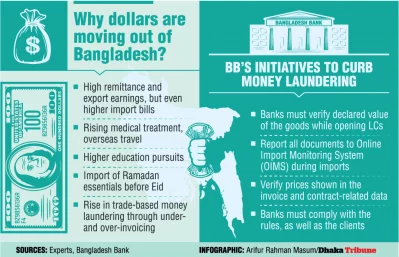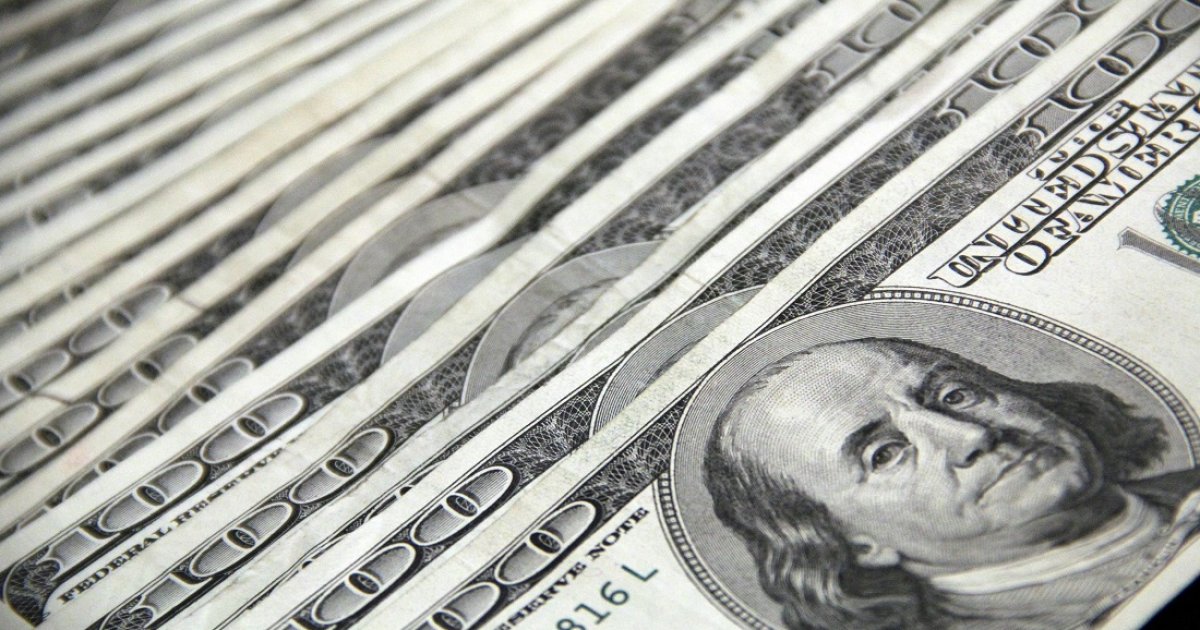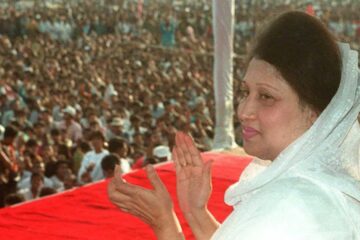The unusual outflow of dollars from the country has raised concerns.
Despite the increase in remittances and export earnings, the rapid increase in import costs at the beginning of the new fiscal year has put pressure on foreign trade.
According to experts, it is important to deeply investigate whether a new wave of money laundering is behind this unusual flow.

Economists say that the increase in trade deficit, the return of the current account deficit, the trade deficit, and the unusual outflow of dollars at the beginning of the new fiscal year are all warning signs for the economy.
Analysts believe that several combined factors are at work behind the increase in the fear of money laundering.
Expenditure on medical treatment and travel abroad has also increased abnormally, indicating that old ways of taking money out of the country are becoming active again.
According to the latest report of Bangladesh Bank, trade deficit stood at $5.71 billion in the first three months of the current FY26, which is $1.07 billion more than the same period last year. That is, the deficit has increased by about 25% in a year.
During this period, export earnings were $1.108.7 billion, while import expenditure was $1.68 billion.
The additional import of food, cooking oil, sugar, and daily necessities around Ramadan — and the increase in foreign travel, medical, and education expenses — has increased pressure on the dollar.
As a result, the current account has also turned negative after a long time, falling to a deficit of $480 million.
Where the dollar is going
Experts say that not only is expenditure necessary for imports, but also the sudden rapid outflow of expenditure is not in line with the normal situation.
They believe that money laundering may have a partial role in this.
Former World Bank Chief Economist Dr Zahid Hussain told Bangla Tribune: “Remittance and export flows are positive. Yet, it is not clear where so many dollars are going from the country. There is a hint of money laundering in the abnormal outward flow.”
He believes that some groups are taking advantage of the relaxation of import restrictions and dollars may be laundered through additional invoicing or over-invoicing.
Transparency International Bangladesh (TIB) executive director Dr Iftekharuzzaman said that money laundering has not stopped in the country, but rather those who get the opportunity are still laundering money.
He told Bangla Tribune: “Money laundering happened before; it still happens. There is no reason to think that money laundering from the country has stopped after August 5 last year.”
The TIB executive director also said that compared to the initiatives that are being seen to bring back laundered money, there is no initiative to stop laundered money.
Bleak investments
A study has shown that about 75% of the total money laundered from the country is through trade-based money laundering.
A huge amount of money is leaving the country through false declarations, over-invoicing, and under-invoicing during import and export.
This information was highlighted in a research paper presented at a roundtable discussion organized by the Bangladesh Institute of Bank Management (BIBM) recently.
The research was prepared by analyzing data from the National Board of Revenue (NBR).
The research paper says that after the amendment of the Prevention of Money Laundering Act of 2015, the Customs Intelligence and Investigation Department investigated a total of 95 money laundering cases till July this year, and all of them were related to trade smuggling.
The financial amount of these cases stands at Tk3,201 crore.
Bangladesh Bank spokesperson Arif Hossain Khan said: “We have relaxed some policies to deal with the dollar crisis so that there is no problem in importing essential goods. Import costs have increased due to the upcoming holy Ramadan. That is why the trade deficit has widened.”
However, he declined to comment on the possibility of money laundering.
Money laundering not stopping
The report of the White Paper Committee formed by the interim government to reform the financial sector says that about Tk2,800,000 crore has been laundered from the country abroad in the last 16 years of the Awami League government.
The information from the White Paper Committee has revealed that a large part of the laundered money has gone to various tax haven countries.
Bangladesh Bank Governor Dr. Ahsan H. Mansur told Bangla Tribune: “Initiatives have been taken to bring back the money laundered abroad by at least 150 individuals. We are in touch with various countries regarding the individuals and institutions involved in banking transactions who have transferred money abroad.”
Former Janata Bank Chairman Dr Jamal Uddin said: “The government that is in power says that everything is fine. But after the change of government, their irregularities and corruption came to the fore. Therefore, it is more important to stop the laundering now than to recover old money.”
Meanwhile, Bangladesh Bank has directed banks to adhere to the import policy to prevent trade-based money laundering.
They have been asked to follow rules in verifying the value of imported goods and opening high-value letters of credit (LC).
This decision was taken at a policy review meeting after various irregularities were recently identified in import valuation and reporting.
The central bank says that several banks are not properly verifying the declared value of the goods while opening letters of credit or entering into import contracts.
Bangladesh Bank issued a circular on October 15, where it said it was mandatory to report commercial documents and other related documents to Online Import Monitoring System (OIMS) for all imports.
The price shown in the invoice and contract-related information must be verified properly.
Information-based and transparent monitoring must be ensured for both exporters and importers.
Banks must immediately inform their branches, clients, and related staff about this rule. At the same time, clients must also be informed about the rule.
Failure to comply with the rules may result in obstacles to imports or stricter monitoring.



